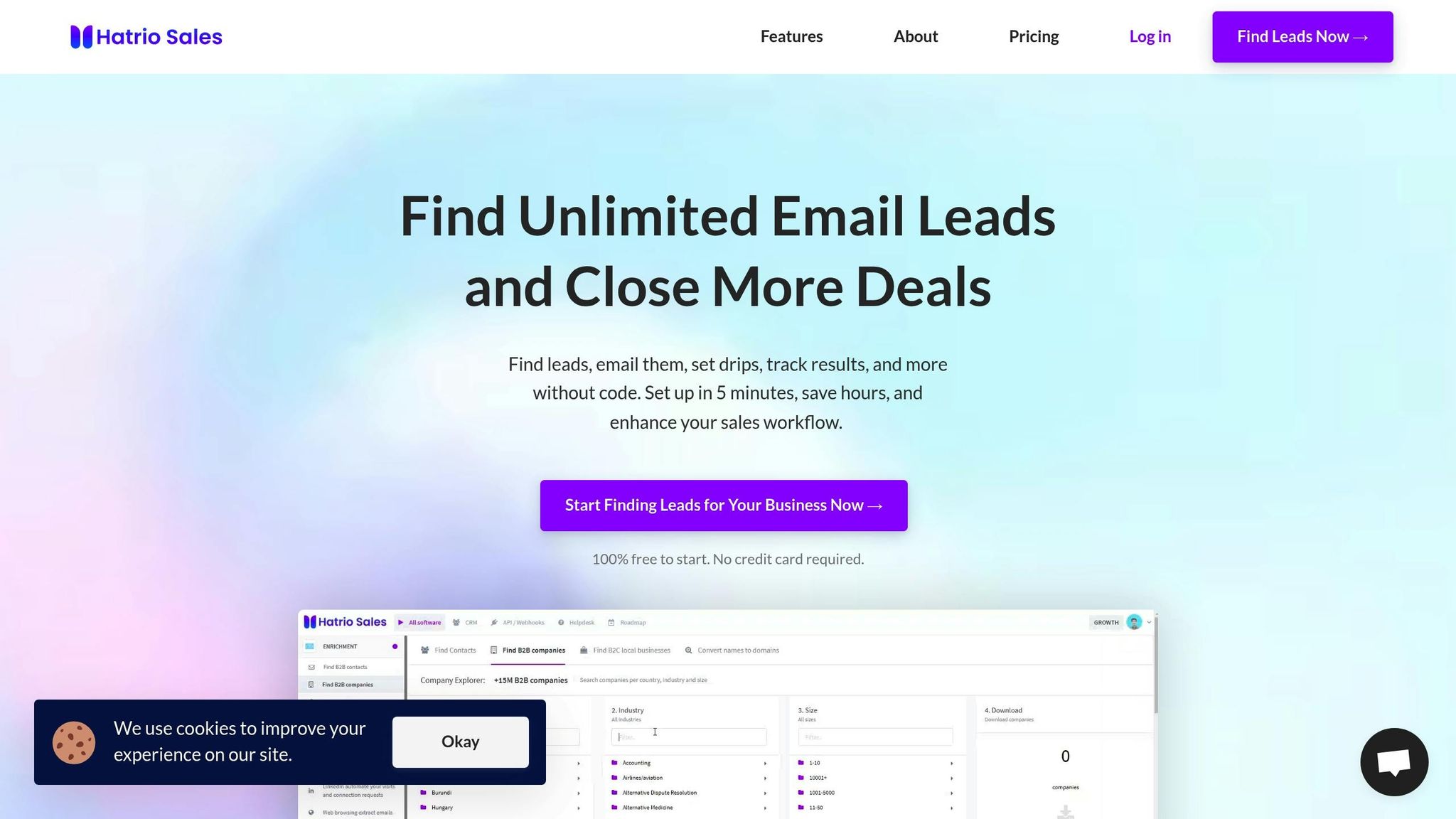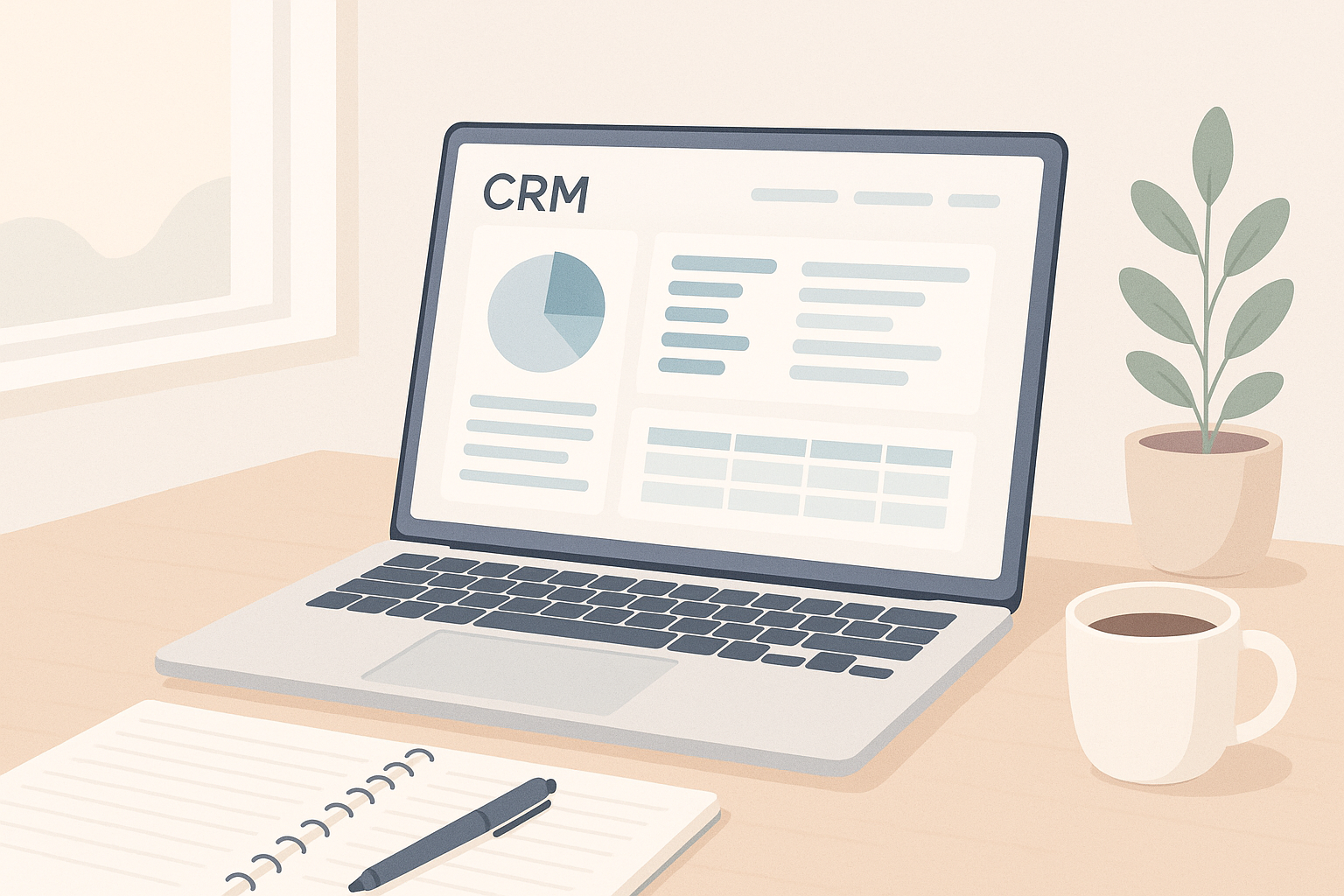CRM audit trails are digital logs that record every action, change, and interaction within a CRM system. They track details like who accessed data, what changes were made, and when those changes occurred. These records are essential for security, compliance, and accountability. Here's why they matter:
- Security: Detect unusual activities like unauthorized logins or large data exports.
- Compliance: Help meet regulations like GDPR, HIPAA, and SOX by documenting data handling.
- Accountability: Monitor user actions, system updates, and data changes for transparency.
- Operational Insights: Resolve data discrepancies and track team performance.
Key Features of CRM Audit Trails:
- Activity Tracking: Logs user logins, data changes, and system updates.
- Change History: Captures before/after values and reasons for changes.
- Access Control: Manages permissions and tracks export activities.
- Data Storage: Securely stores logs with encryption and retention policies.
Hatrio Sales, for example, offers advanced audit trail tools with real-time monitoring, automated alerts, and compliance support. These tools not only enhance security but also simplify audits and improve operational oversight.
Auditing in Dynamics CRM
Main Functions of CRM Audit Trails
Security and Fraud Detection
Audit trails play a critical role in identifying and addressing suspicious activities within CRM systems. They keep an eye on:
- Unusual data access or export patterns
- Large-scale changes to records
- Adjustments to system permissions or settings
For example, Hatrio Sales' audit trail system is equipped with features that automatically flag potential threats. It can detect repeated failed login attempts from unexpected locations or large data exports occurring at odd hours.
In addition to identifying risks, these audit trails serve as a detailed record, offering a clear view of the system's overall activity and security status.
System Activity Tracking
Audit trails log user actions like login/logout times, data changes, and system updates (such as configuration tweaks, permission changes, or integration modifications).
This type of tracking boosts accountability by capturing specific details about user actions. Here's how it breaks down:
| Activity Component | Tracked Information |
|---|---|
| User Identity | Username, role, department |
| Timestamp | Date, time, timezone |
| Action Type | View, create, modify, delete |
| Record Details | Before/after values, field changes |
| Access Method | Web interface, API, mobile app |
sbb-itb-b22f30c
Required Elements of CRM Audit Trails
Activity Recording System
At the core of CRM audit trails lies a reliable recording system. Hatrio Sales employs a robust mechanism that logs key details, including:
- User identification: Captures name, employee ID, department, and role.
- Timestamp: Precise to the millisecond, complete with timezone information.
- Action specifics and session details: Tracks login duration and access method.
- Location data: Logs IP address and device information.
Change History Tracking
Change history tracking goes hand-in-hand with activity recording, ensuring every modification is documented. This process preserves both the original and updated values, maintaining data accuracy. Key tracking components include:
| Tracking Element | Purpose | Implementation |
|---|---|---|
| Field-Level Changes | Tracks specific modifications | Logs old and new values for each field |
| Modification Context | Provides reasons for changes | Captures reason codes and user comments |
| Sequential Logging | Ensures chronological order of changes | Assigns unique timestamps to each modification |
| Data Relationships | Tracks updates to related records | Maps connections between linked entries |
Access and Version Management
Effective audit trails require more than just tracking changes - they also rely on managing versions and access rights. Hatrio Sales' system includes:
- Version control: Creates a new version for every record update while keeping previous versions intact.
- Access hierarchies: Role-based permissions define who can view and modify audit logs.
- Retention policies: Automates the storage of audit records to meet compliance standards.
- Export controls: Monitors and regulates data exports.
Separate logs for system configurations and data changes ensure a clear view of all activities. Each log entry is tied to the relevant business process for added context.
Setting Up CRM Audit Trails
Basic Setup Steps
To set up CRM audit trails, start by identifying what needs to be tracked. Hatrio Sales simplifies this process with a structured approach.
Key elements to track include:
- Data modifications: Changes to customer records, deals, and contact details
- User activities: Actions like logins, searches, and data exports
- System settings: Adjustments to workflows, automation rules, and security configurations
Hatrio Sales offers detailed controls for administrators to adjust audit trail sensitivity. Once configured, schedule regular reviews to ensure the logs remain accurate and reliable.
| Tracking Level | Activities Monitored | Storage Impact |
|---|---|---|
| Basic | Essential system access | Minimal |
| Standard | Record changes and exports | Moderate |
| Advanced | Full system monitoring | Comprehensive |
Log Review Process
After setting up the audit trail, regular reviews are essential to maintain its reliability. Hatrio Sales includes tools that make log analysis straightforward:
- Real-time monitoring: View live system activity on dashboards
- Automated alerts: Get instant notifications for unusual behavior
- Custom report generation: Schedule reports to analyze user activity trends
- Access history visualization: See timelines of record changes for better insights
Define a review schedule that aligns with your compliance and operational needs.
Data Storage Guidelines
Storing audit logs securely is critical for maintaining system integrity. Follow these best practices:
- Keep logs for at least 12 months or longer, depending on industry standards
- Use encryption for data at rest and during transmission, with secure backups
- Restrict access to authorized personnel and utilize immutable storage
- Archive older logs and use compression to manage storage efficiently
- Implement indexed storage for faster log retrieval
Hatrio Sales automates these processes, storing audit logs in encrypted environments while ensuring they remain accessible. Its storage system scales with data growth, maintaining performance without interruptions.
Conclusion
Key Points Review
CRM audit trails play a crucial role in maintaining data accuracy and ensuring transparency. By keeping a detailed record of user actions, system updates, and data changes, these tools provide several key advantages:
- Improved Security: Ongoing tracking helps identify and mitigate potential security threats.
- Regulatory Compliance: Detailed logs support adherence to industry regulations.
- Better Operational Insights: Clear records aid in making informed decisions.
Hatrio Sales Audit Trail Features

Hatrio Sales takes these benefits further with its advanced audit trail capabilities, tailored to meet the demands of modern businesses. The platform offers robust tracking combined with automated oversight across the entire sales process, from initial contact to closing deals.
Highlighted features include:
- Real-Time Monitoring: Instantly track user actions and system updates.
- Secure Data Storage: Encrypted storage with adjustable retention settings.
- Compliance Tools: Built-in functions to help meet regulatory requirements.
- Customizable Tracking Options: Adaptable settings to focus on specific activities relevant to your business.
These audit trail tools integrate effortlessly with Hatrio's full suite of sales automation features, helping businesses stay secure and compliant while driving growth.



